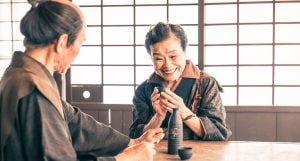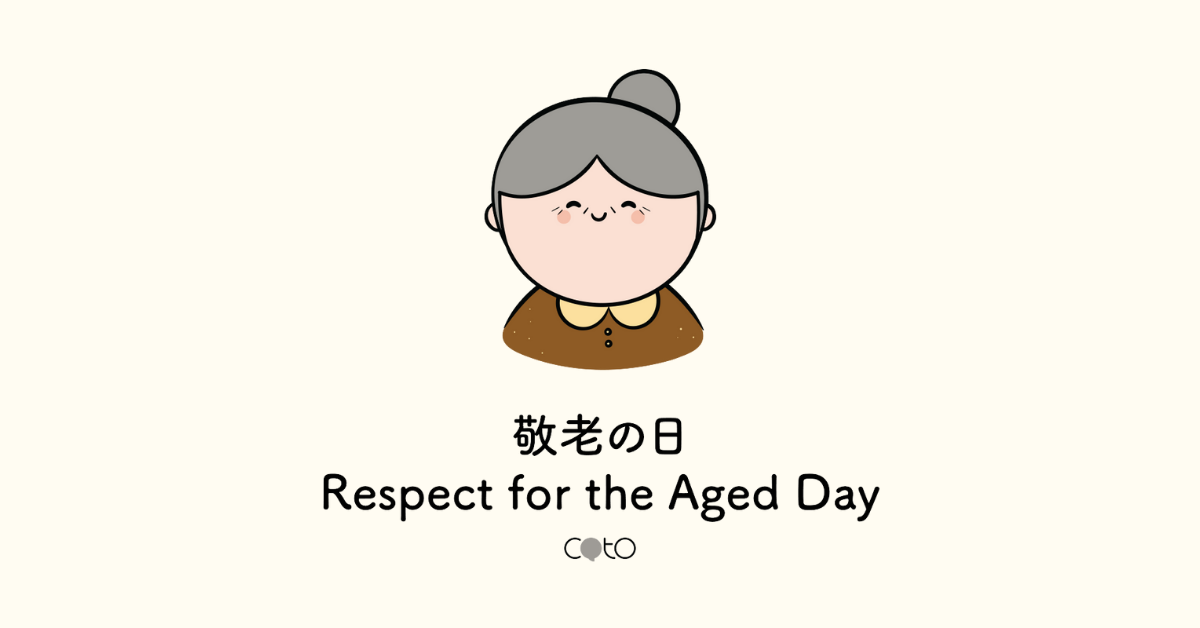What started as a local custom at a village in Hyogo Prefecture, Respect for the Aged Day (Keiro no Hi, 敬老の日) later became a nationwide celebration dedicated to our elders and their countless contributions to society.
Originally called ‘Old Folks Day’, it became a national holiday in 1966 and it occurs on the third Monday of every September. This year it takes place on 18th September.
Why is Valuing Elderly Citizens Important?
For those of us who weren’t born and raised in Japan, the cultural differences between Japan and our home country can be many. One thing most of us have probably noticed though, is Japan’s respect for its elders.
How frequently are you asked for your age in Japan? Have you ever been asked your age by a stranger?

Back in the UK, this could be quite rude. But in Japan, this isn’t meant to offend us. Far from it. In most cases, people want to ascertain how old we are to ensure that they speak to us using the most polite language.
With Japanese having three different forms of language: casual, polite and honorific. When we speak to someone with more years behind them, in most cases we would use keigo – an honorific form of language.
Japan and Palau are the only countries in the world to have national holidays dedicated to the elderly but the symbolism of this day is relevant to everyone. Most of us, at some point in our lives, will move away from home, and as a result, we see less-and-less of our parents and grandparents.
This holiday is a welcome reminder to treasure the older population; to listen to them, learn from them and support them as much as possible. If you haven’t seen them in a while, simply call them out for lunch and go” Hisashiburi desu“! It may seem like a small act but a little does go a long way!
After all, it is through the older generations that we can learn from their mistakes, learn their traditions and use their experience to make better decisions.
How has the Holiday Changed Since it Started?
Respect for the Aged Day took place annually on 15th September – until 2003 – when it was moved under the Happy Monday System to create a three-day weekend.
Since the date change, the government has altered the commemoration gift. Originally, anyone who reached triple-digits in the 12 months prior received a solid silver sake cup. Whilst this may sound slightly extravagant to some of us, until now there only 153 people who qualified for the gift.
Jumping forward to over 50 years later, Japan now has the largest percentage of centenarians on the planet – around 30,000. So, rightly or wrongly, in 2016 the government decided to reduce costs by replacing the traditional cups with silver-plated ones.
How is the Respect for the Aged Day Celebrated?
There are a few traditional ways to mark this day. First and foremost, with the three-day weekend now available, many people are able to return home to celebrate with their loved ones. Secondly, volunteers in some neighbourhoods help to produce and distribute free bento lunch-boxes to older citizens.
Smaller communities also provide various keirokai shows, where teenagers and children perform dances and songs for the elderly. Lastly, the Japanese media take this opportunity to honour our older citizens by featuring special programmes dedicated to them.
There are other various traditions surrounding this day, but it greatly depends upon the community!
How You Can Commemorate the Day in and around Tokyo
- Connect with your elders directly. If you’re unable to spend time together in-person, then a simple call, letter or message can go a long way – especially if they aren’t expecting it.
- Small acts of kindness are contagious. You can be especially kind to older people on this day by offering to carry bags (especially up steps!), holding open doors and offering your seat on the train or bus.
- Ask your local community centre if they are running any activities for residents and if you can volunteer.
- Watch one of the Japanese feature-programmes about Japan’s older population.
- As Mahatma Gandhi said, “live as if you were to die tomorrow, learn as if you were to live forever.” Our elders possess a wealth of knowledge and they are often very willing to share it. Why not ask about their experiences with something that matters to you? You can offer a favour to them in return.
Want to find out about other holidays in Japan? Why not try checking out Japan’s Labour Thanksgiving Day!
